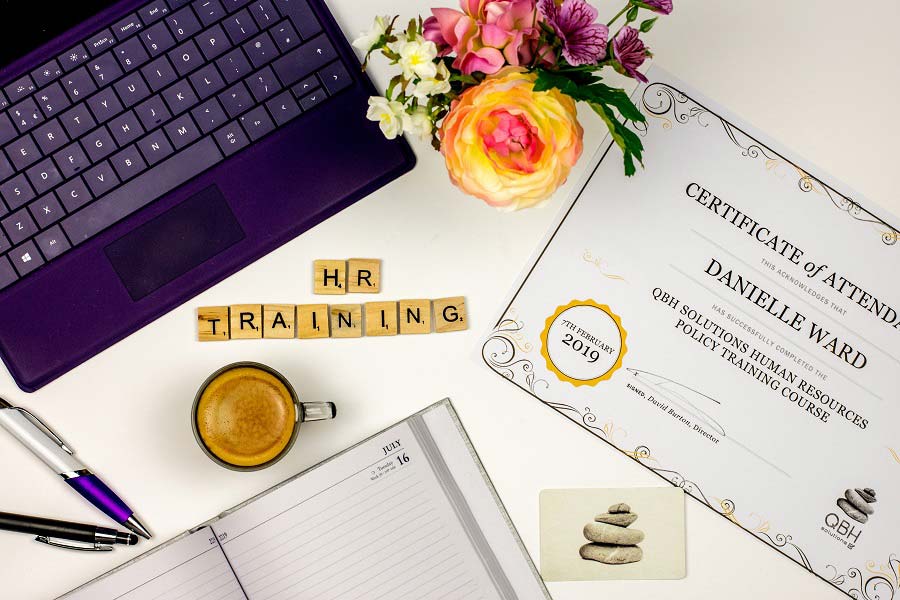Where do I Start with Staff Training?
As your business grows and you start to employ staff and build a team, one of the important areas for both the consistency of delivery within the business but also the wellbeing of your employees is to ensure that you have an appropriate training programme in place and it is also an important part of your HR management and support tools. Sounds obvious, but where do you start to make sure you are providing the right training to the right people at the right time?
Assess the Training Needs of the Staff
The starting point needs to be an assessment of what the people in your business actually need to learn. Unnecessary training is time consuming, not particularly interesting for staff and costs money.
Start by preparing a list of everything that you think your staff should know, you can refer back to their job description – what knowledge do they need to be able to do their jobs effectively and safely. It may also be appropriate to ask the team where they feel there might be gaps in their knowledge too. Now you can start to construct a Training Plan.
Creating a Training Plan
An effective way to structure your Training Plan is to tier it so that it starts with the easier subject areas first and then builds in levels of training up to the more complex tasks/subjects. Where possible, it’s helpful if the skills and knowledge learnt in a session build upon previous training. If there is a requirement for staff to undertake annual ‘refresher’ training then make sure that you factor this into the plan as well.
It’s also useful to assess whether there may be any ‘training gaps’, for example, training your team on your new software will be difficult if the staff you’re training lack basic IT knowledge, so make sure that any skills needed to deliver the training effectively are already in place.
Schedule Regular Training Sessions
So now you have a Training Plan to work to – the next thing is to schedule training sessions for your staff at regular, appropriate times throughout the year. Regular training ensures that you can upskill your staff more effectively and it also ensures that people remain engaged with the training purpose.
How you actually roll out the training sessions depends very much on the type of training, the size of the workforce that you are working with and the facilities that you have available. All-staff meetings can be effective for delivering generic training as long as it’s not too disruptive to the operation of your business.
Alternatively, for more complex training or where your team work different shifts, you may wish to schedule the sessions by department, by shift teams or even on a one-to-one basis.
Make Sure You Have the Most Appropriate Trainer
It may seem that the person with the most knowledge in a certain area is the best person to deliver the training if you are using an in-house specialist. However, delivering training is a very skilled role in itself and requires someone with patience, knowledge and the right ‘tools’ to be able to train people.
In some cases is may be more appropriate to hire in a specialist external trainer but make sure you do your research on training providers to ensure they are a good fit with your business and the training programme that you’re looking to deliver.
Review the Effectiveness of Your Training
Once you’ve delivered your training session make sure that you assess it’s effectiveness. Ask the people that attended the course if it was useful and fit for purpose so that you can refine the programme for future use. A simple end of training questionnaire is quite a useful way of drawing this information out.
Set Training Goals as Part of Your Staff Performance Reviews
Good Human Resources management practice is to ensure that your staff have regular performance reviews or appraisals and this is also the perfect opportunity to discuss skills gaps and training opportunities and to set targets.
Be sure to think about the goal of the training if you are looking to set it as a target for the employee and as with any goal setting, make sure that it’s success is measurable. Again, make sure that you feed the effectiveness of the training that has been delivered and the improvements in staff skills back into your Training Programme to create a process of continual improvement.
At QBH Solutions we offer a wide range of different HR, Compliance and Training support options. If you’d like to have more information on how we can support you and your business as it grows then please do get in touch with the team on 01304 449043.





Leave A Comment